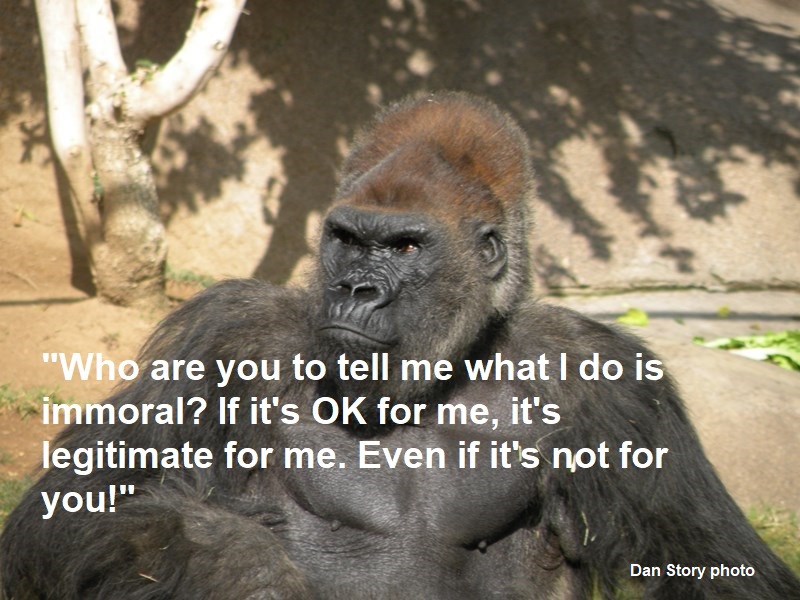
Part Three: What Is “Naturalism,” and How Is It an Excuse to Live Immoral Lives?
Although most people associate naturalism with modern science (see last week’s blog), the fact is naturalism has moved far beyond science to become the secular infrastructure—the foundational presupposition (assumption)—of ethics, psychology, sociology, education, and law. Its influence, however, is particularly significant in three areas: (1)The justification for moral relativism, (2) the basis for rejecting the existence of God, and (3) the philosophical grounding for evolutionary science. We’ll examine and refute all three beginning in this week’s blog post.
Naturalism As a Justification for Moral Relativism
Because naturalism is a philosophy rather than science (last week’s blog), it can and does permeates all facets of modern society. Nowhere is this more evident and dangerous than in the area of ethics. Naturalism’s godless worldview is foundational to moral relativism and the rejection of absolute standards of right and wrong. Follow these thoughts:
- If naturalism is true, there is no God.
- If there is no God, people are elevated to supreme beings, and there is no objective basis for moral absolutes.
- Without absolute standards of right and wrong, and if people are supreme beings, ethics arise from human feelings and experiences.
- Since individual societies and people differ in their acceptance or rejection of particular moral behaviors (e.g., abortion and homosexuality), and since no absolute higher authority exists to say whose view is correct (i.e., God), it logically follows that all moral perspective must be equally true and acceptable.
This is moral relativism, and here’s the danger. Without God, there is no ultimate “good” to identify what is ultimately “bad.” Ethical behavior becomes descriptive rather than prescriptive. It’s how we choose to behave, not how we ought to behave. “Sin” in an absolute sense is nonexistent. The whims of the most powerful determine moral behavior: the physically (or militarily) strongest, the most influential, the richest, or the dominant political party. In terms of naturalism, what people think is immoral or evil is actually the fruit of natural selection—”survival of the fittest.” It’s merely nature.
Sadly, the cultural pacesetters in America today—especially in academia—are increasingly endorsing this moral philosophy. For example, Princeton University professor of bioethics, Peter Singer, openly advocated infanticide. Singer wrote, “No newborn should be considered a person until 30 days after birth and that the attending physician should kill some disabled babies on the spot . . . ” because “they are not persons.” Therefore, “the life of a newborn is of less value than the life of a pig, a dog, or a chimpanzee. (Quoted in Scott Klusendorf, “Death with a Happy Face: Peter Singers Bold Defense of Infanticide,” Christian Research Journal, Volume 23, Number 3.)
Singer and like-minded academicians illustrate the godless philosophy of naturalism, carried to its logical and lethal conclusion, results in a total disregard for the sanctity of human life. Sadly this is what students are taught in many of America’s stellar universities. And why not? If there is no God to condemn such behavior, there is no objective reason not to eliminate the weak and dependent. It’s frightening to imagine what this nation will be like if these students become the moral pacesetters in society. ©
Next week we’ll see how naturalism offers irrational excuses for rejecting God’s existence.